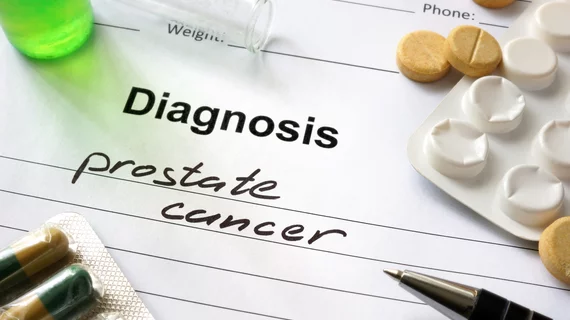Nuclear medicine departments now have a new radiopharmaceutical option for staging prostate cancer during imaging exams.
The novel radiotracer—18F-PSMA-1007—was proven to be just as accurate as the commonly used material—68Ga-PSMA—for characterizing intermediate- or high-risk forms of the disease. It’s another dependable tool clinicians can use to determine cancer severity and potentially bolster staging for patients across the globe, researchers wrote in the April issue of the Journal of Nuclear Medicine.
“In view of the near-equal performance of the two tracers, this preliminary study suggests the routine use of 18F-PSMA-1007 in lieu of 68Ga-PSMA-11 for staging prostate cancer patients; clinicians can use either radiotracer based on availability,” Jonathan Kuten, MD, a nuclear medicine specialist at Tel Aviv Sourasky Medical Center in Israel, wrote.
In order to reach their conclusions, Kuten and colleagues prospectively performed 18F-PSMA-1007 and 68Ga-PSMA-11 PET/CT within 15 days of each other in 16 individuals who were set to undergo surgery. Both tracers revealed tumor locations with nearly the exact same diagnostic accuracy. In four patients, however, the novel material detected a second positive focus, three of which were confirmed to be cancer while a fourth showed chronic prostatitis.
Additionally, 18F-PSMA-1007 met the gold standard for prostate cancer imaging—histopathologic findings taken from radical prostatectomy samples.
Einat Even-Sapir, MD, director of the Institute for Nuclear Medicine at the Tel Aviv center, also pointed out that the novel radiotracer has a longer half-life, better pharmacokinetics, central mass production and “potentially better spatial resolution” compared to 68Ga-PSMA-11.
The researchers did confirm that their findings are preliminary and encouraged further studies to test the radiopharmaceutical in larger cohorts.

